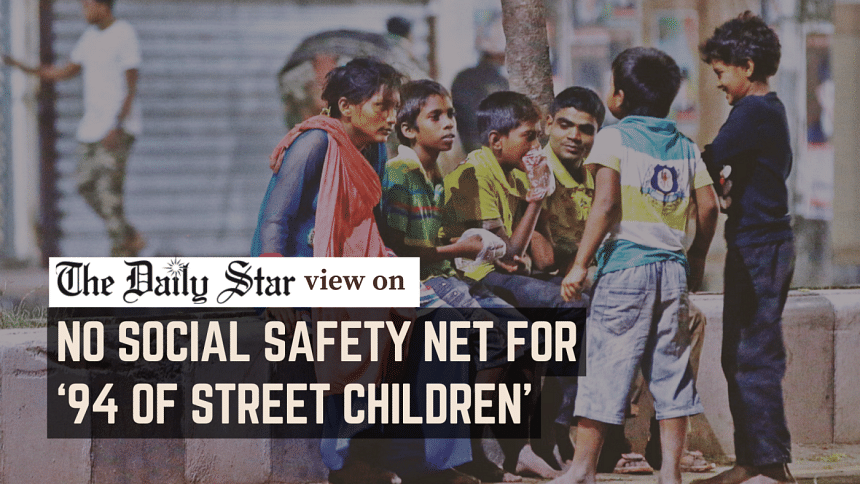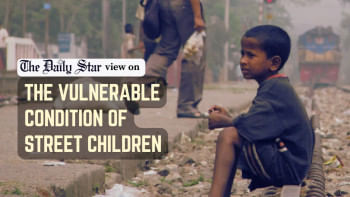Social safety net must cover street children

We are concerned about the street children's persistent exclusion from social protection systems and mechanisms. According to a survey recently unveiled by Caritas Bangladesh, a staggering 94.3 percent of street children remain excluded from the government's social safety net, while 58.2 percent do not have birth certificates, preventing them from accessing formal education and state-sponsored services. Among those without birth certificates, 71.4 percent do not know their parents' national ID numbers, making their registration difficult or impossible. This shows, among other things, how the system itself can fail the vulnerable thanks to interlinked, often complicated procedures. It is no surprise that 51.6 percent of the children surveyed are not currently enrolled in any school or madrasa.
The Caritas survey size may be small—covering 667 street children across Dhaka, Mymensingh, and Rajshahi—but the picture that emerges from it more or less aligns with the alarming levels of exclusion, abuse, and exploitation reported by previous reports and surveys. So, not only are they being deprived of essential services but they are also being exposed to life-altering dangers including sexual abuse, physical assaults, exposure to crime and drugs, and hazardous labour. Even children growing up with parents in slums are often similarly vulnerable thanks to lack of support for the marginalised communities. These circumstances offer a reality check about the challenges facing the interim government as it tries to recast the social safety net schemes.
In the proposed FY2025-26 budget, the government allocated Tk 37,076 crore for 39 social safety programmes that directly benefit the poor and vulnerable, excluding unrelated components like pension, savings certificate interest, and agricultural subsidies that previously consumed much of the budget. Monthly cash benefits for marginalised groups have also been slightly increased, and the number of beneficiaries expanded. However, these efforts will fall short unless they are accompanied by systemic reforms to address inclusion and identification barriers. The fact that most street children lack identification, and thereby access to required support and protections, is a structural failure that must be fixed. No reform of the safety net can be meaningful if it leaves behind the most vulnerable.
We, therefore, urge the government to prioritise bringing those children into the fold and ensure that they are provided with necessary support. At its survey unveiling programme, Caritas Bangladesh made a number of recommendations which deserve to be considered. With so many children living in vulnerable conditions, we must do more—and do better—going forward.


 For all latest news, follow The Daily Star's Google News channel.
For all latest news, follow The Daily Star's Google News channel. 









Comments